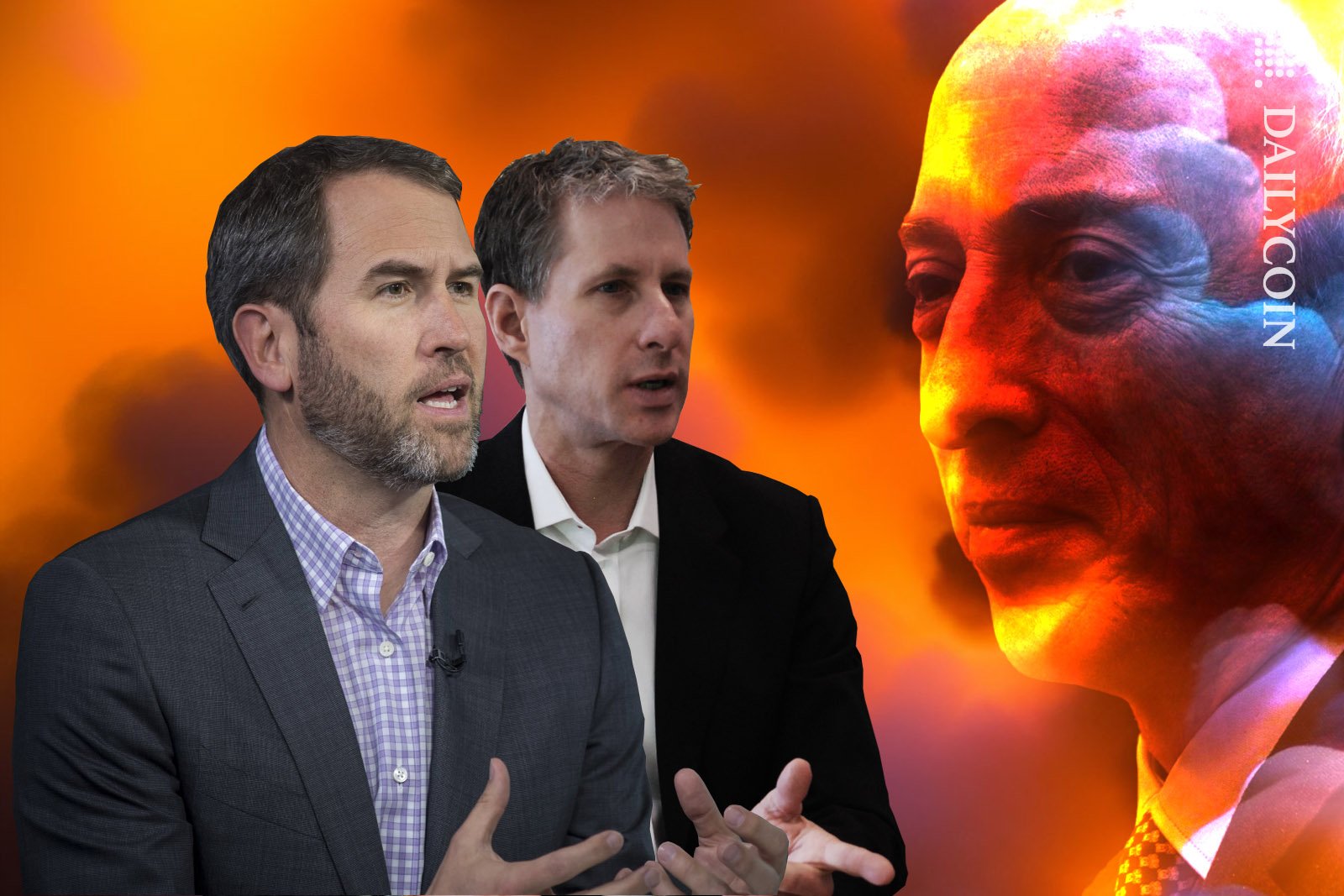
- Ripple‘s CEO and Executive Director have taken a bold stand against the SEC‘s appeal.
- XRP’s classification as a security has come under scrutiny following a recent ruling.
- Ripple‘s top legal officer has weighed in on the appeal, raising questions about the SEC‘s motives.
In an unexpected turn of events, Ripple’s CEO, Brad Garlinghouse, and Executive Director, Chris Larsen, have escalated the ongoing legal dispute with the Securities and Exchange Commission (SEC). They have taken a decisive stand by strongly opposing the regulator’s plea for an interlocutory appeal.
Garlinghouse and Larsen Challenge SEC’s Appeal
This opposition, submitted on their behalf, directly counters the SEC’s push for an appeal, asserting that the regulatory body lacks substantial grounds to justify the need for such an extraordinary measure.
Garlinghouse and Larsen firmly maintain that the likelihood of the SEC’s success in the appeal’s legal merits is limited. They underscore the significance of the July 13 verdict, which unequivocally determined that XRP does not fall under the definition of a security.
Sponsored
They dismiss the SEC’s allegations of recklessness, deeming them unfounded, and remain steadfast in their belief that the impending trial will validate their standpoint.
Ripple’s Top Brass Confident in Disproving SEC Allegations
Taking to Twitter, Stuart Alderoty, Ripple’s Chief Legal Officer, eloquently conveyed the company’s official stance, emphasizing their opposition to the SEC’s plea for an interlocutory appeal.
Alderoty accentuated the absence of extraordinary circumstances necessitating a deviation from the established rule, which mandates the resolution of all pertinent matters before an appeal. Garlinghouse weighed in, reminding the public that the ongoing deliberation regarding classifying XRP as a security is not subject to trial.
Sponsored
Garlinghouse drew attention to the recent court ruling, which bolstered their position, and exuded confidence in their capacity to disprove the SEC’s allegations through the legal proceedings.
Notably, this opposition document meticulously underscores the potential for irreparable damage to the reputations of Ripple’s top executives. It raises probing questions about the underlying motivations driving the SEC’s pursuit of this particular course of action.
The executives emphasized that the SEC’s strategic approach of fostering regulatory ambiguity has critically impeded the growth and innovation within the digital asset domain.
On the Flipside
- While Garlinghouse and Larsen assert that the July 13 ruling firmly establishes XRP’s non-security status, the court’s decision does not set a binding precedent. It could be subject to change upon further review.
- Ripple’s argument about irreparable harm to their reputations might not hold water, given the ongoing legal scrutiny and public debate surrounding the case, which has already impacted the company’s image.
Why This Matters
As this legal clash unfolds, it tests the classification of XRP and underscores the broader industry’s need for clarity and regulatory certainty. The outcome of this battle could potentially set a precedent for how digital assets are regulated and perceived.
To delve deeper into the ongoing Ripple-SEC legal clash and the opposing motion, explore the details here:
Ripple Labs Files an Opposing Motion Against SEC’s Appeal
For insights into the recent intriguing development involving an anonymous banker in the SEC-Ripple legal clash, delve into the details here:
Anonymous Banker Rejoins SEC vs. Ripple Labs Legal Battle: Who Could It Be?
